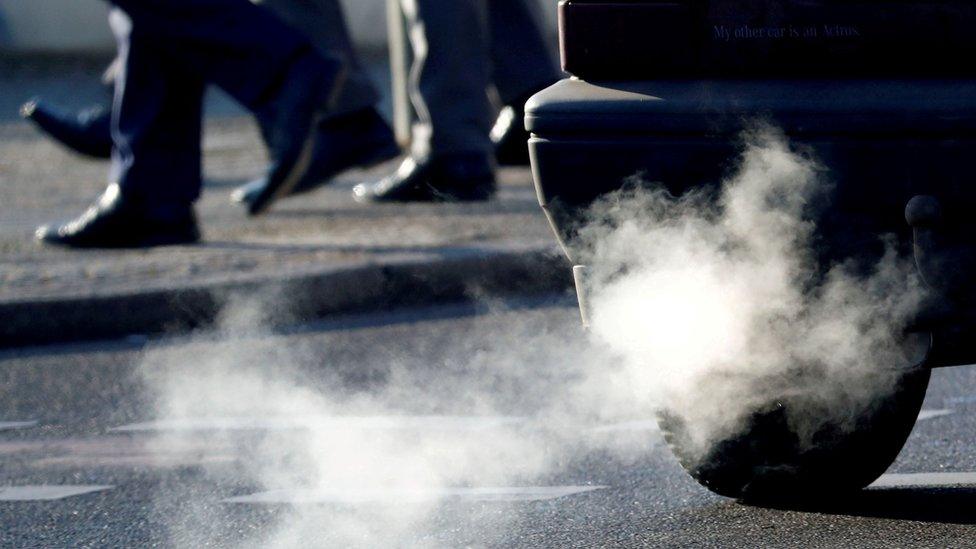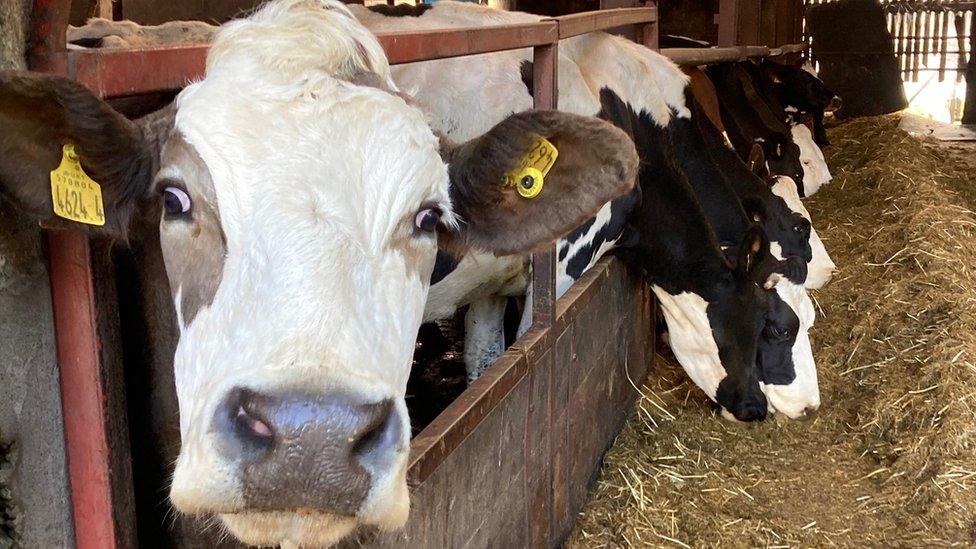NI Greenhouse gas emissions increased by 5% in 2021, report finds
- Published
- comments

Transport and agriculture were two of the sectors that saw the biggest increase in greenhouse gas emissions
Greenhouse gas emissions in Northern Ireland have increased, a new Stormont report has said.
Figures from the Department of Agriculture, Environment and Rural Affairs, external (Daera) showed a 5% rise in emissions in 2021 from the year before.
However longer-term trends continued to show a decrease of about 23% in emissions compared to 1990.
While agriculture remained the highest contributor at 27.6%, emissions from most sectors rose.
The largest increases were in transport, agriculture and energy supply.
Waste management and public sector buildings were the only two sectors which did not have an emissions increase.
Northern Ireland has a target of reducing emissions by at least 48% by 2030.
Director of RenewableNI Steven Agnew described the report's findings were disappointing.
"With the impact of climate change already being felt in Northern Ireland, we cannot afford to go backwards," he said.

Steven Agnew from RenewableNI said steps need to be taken to reduce emissions in line with targets
He called for rapid reform to allow electricity projects to reduce emissions from a number of sectors.
"If you want to decarbonise something, the fastest way to do that is to put a plug on it," he continued.
"The Climate Act set the target of 80% renewable electricity generation by 2030.
"This will reduce electricity emissions by 75% from where they are today.
"In addition, by electrifying heat and transport we can also reduce the climate impact of those sectors."
Policy changes needed
Mr Agnew said RenewableNI members had enough projects in development to achieve a zero carbon electricity system by 2035.
"Unfortunately, it's typically taking between two and five years to get planning permission for large scale renewable projects. This is driving investment elsewhere.
"The ability to dramatically decrease Northern Ireland's greenhouse gas emissions, and to improve energy costs for consumers, is being held back by the slow pace of policy change."
Northern Ireland contributed 5.3% of all UK greenhouse gas emissions in 2021, which stood at 426.5 MtCO2e.
In the UK there has been an almost 48% emissions reduction between 1990 and 2021.
During the same period, the reduction in emissions in Northern Ireland was 23.2%, compared to 50.2% in England, 49.3% in Scotland and 35.0% in Wales.
Related topics
- Published9 February 2023
